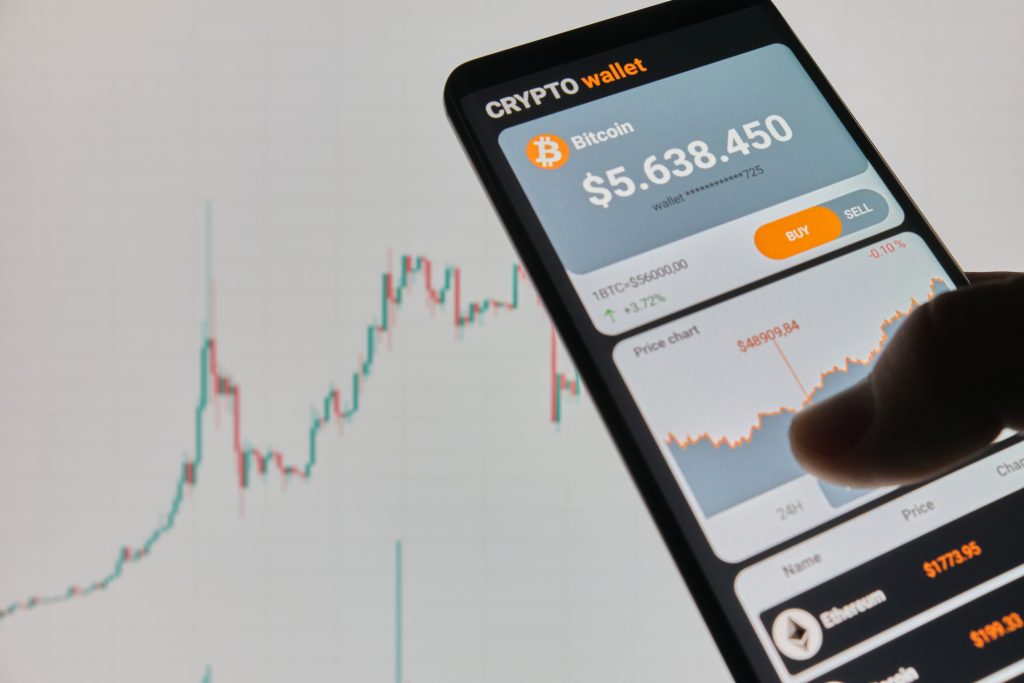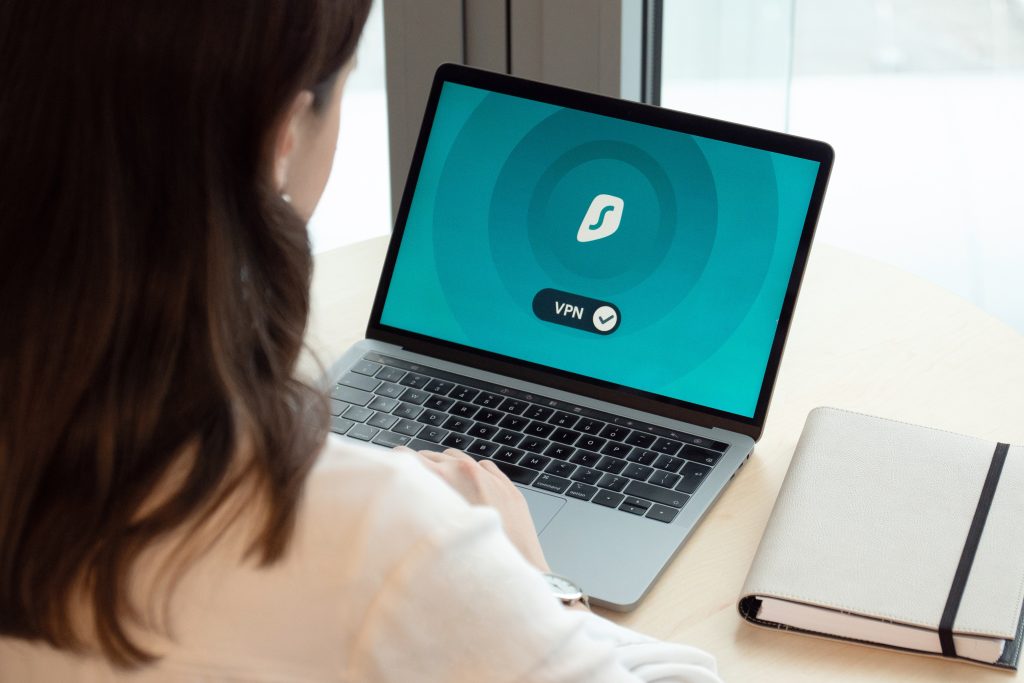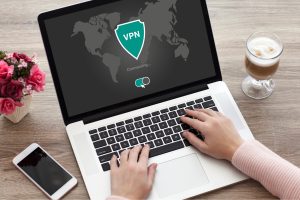Privacy Matters: Essential Tips For Maintaining Cryptocurrency Security With VPNs
9 min read
As the popularity of cryptocurrencies continues to rise, so does the importance of protecting your digital assets. With the increasing number of cyber threats, it’s crucial to take necessary precautions to ensure the security of your cryptocurrency transactions. Are you aware of the role that VPNs play in safeguarding your privacy and enhancing your online security?
Cryptocurrencies have revolutionized the way we handle money, making transactions faster and more secure. However, this digital revolution also comes with its own set of risks. Hackers and cybercriminals are constantly finding new ways to exploit vulnerabilities in the cryptocurrency world. This is where VPNs come in.
In order to maintain the highest level of security and privacy when dealing with cryptocurrencies, it is essential to incorporate VPNs into your digital strategy. By encrypting your internet connection and masking your IP address, VPNs provide an extra layer of protection against potential threats. In this article, we will explore the importance of privacy in cryptocurrency transactions and provide essential tips for maintaining cryptocurrency security with VPNs.
Why is Privacy Important in Cryptocurrency Security?
Privacy is crucial in cryptocurrency security to protect sensitive financial information from hackers and unauthorized access. Encryption plays a significant role in safeguarding online privacy by converting data into a code that can only be deciphered with the correct key, making it nearly impossible for cybercriminals to obtain valuable information. Additionally, using a Virtual Private Network (VPN) adds an extra layer of security by masking the user’s IP address and encrypting internet connections, making it difficult for third parties to track online activities.
While encryption and VPNs offer great advantages in protecting privacy, they also have limitations. Encryption can be vulnerable to attacks if not properly implemented, and VPNs have the potential to log user data if users choose untrustworthy providers. Therefore, it is essential to carefully select a reputable VPN provider that has a strict no-logging policy and a proven track record of protecting user privacy.

VPNs and Cryptocurrency Security
In the digital age, security and privacy have become increasingly important. As such, the use of Virtual Private Networks (VPNs) has become a popular way to safeguard sensitive online information. By encrypting data and masking IP addresses, VPNs provide a secure and private connection, preventing unauthorized access and online tracking. Similarly, the rise of cryptocurrency has brought about new concerns regarding the security of digital assets. With the decentralized nature of cryptocurrencies, the need for robust security measures is paramount. From secure wallets to reliable exchange platforms, ensuring the safety of transactions and holdings is essential in the world of cryptocurrency.
How Does a VPN Improve Cryptocurrency Security?
A VPN (Virtual Private Network) plays a critical role in enhancing cryptocurrency security in multiple ways. Firstly, it protects sensitive data by creating a secure and encrypted connection between the user’s device and the internet. This ensures that personal information, such as wallet IDs and transaction history, is safeguarded from potential cyber threats.
Additionally, a VPN enhances privacy by masking the user’s IP address and location, making it difficult for hackers to trace and intercept cryptocurrency transactions. This added layer of anonymity minimizes the risk of identity theft and unauthorized access to financial information.
Moreover, a VPN prevents unauthorized monitoring by encrypting all internet traffic, making it nearly impossible for third parties to eavesdrop on crypto-related activities. This safeguards against potential surveillance and data breaches that could compromise the security of cryptocurrency holdings.
Furthermore, VPNs add an extra layer of security to crypto trading platforms by creating a secure tunnel for transactions to occur. This is essential for safeguarding transactions and protecting sensitive financial data from potential breaches.
Benefits of Using a VPN for Cryptocurrency Transactions
Using a VPN for cryptocurrency transactions offers several key benefits for users. Firstly, it provides a high level of safety and security by encrypting your internet traffic, making it difficult for hackers to intercept or access your sensitive information. This is crucial for protecting your identity and wallet from potential cyber threats. Additionally, a VPN allows you to bypass geo-blocks on certain cryptocurrency platforms, enabling you to access trading websites and services that may be restricted in your location. This ensures that you have the freedom to conduct transactions and manage your investments without any limitations.
Furthermore, using a VPN can help you avoid being profiled by governments or third parties, as it hides your IP address and makes it difficult for anyone to track your online activities. This is especially important for individuals who value their privacy and want to maintain anonymity while dealing with cryptocurrencies. Overall, a VPN is an essential tool for crypto enthusiasts as it not only safeguards against potential security risks and hackers, but also provides access to restricted trading platforms, ultimately enhancing the overall experience of conducting cryptocurrency transactions in a safe and secure manner.
Essential Tips for Choosing the Right VPN Provider
In today’s digital age, using a Virtual Private Network (VPN) is essential for ensuring online privacy and security. With so many providers to choose from, finding the right VPN can be overwhelming. However, by considering a few key factors, you can find a VPN provider that meets your needs and offers the best protection for your online activities. Below are some essential tips to help you navigate through the multitude of options and choose the right VPN provider for you.

Research Different Providers Before Making a Decision
Before selecting a provider for a service or product, it is crucial to thoroughly research and compare options. Start by reading customer reviews to gain insight into the experiences of other users. Look for providers with a track record of reliability, good customer service, and a range of customizable options to best fit your needs.
Compare pricing and features offered by different providers to ensure you are getting the best value for your money. Also, consider the level of customer support and assistance available, as this can be crucial in addressing any issues that may arise in the future.
Thoroughly vet each provider before making a final decision to ensure that they meet your specific requirements and expectations. By carefully considering these factors, you can make an informed decision when choosing a provider.
Look for Military-Grade Encryption, AES-256 Encryption, and Reliable Connections
When selecting a VPN for crypto-related activities, it is crucial to prioritize military-grade encryption, such as AES-256 encryption, and reliable connections to ensure the utmost security and privacy of sensitive data. Military-grade encryption is essential for protecting against potential cyber threats and unauthorized access, making it a critical feature for any VPN used for crypto-related activities. The use of AES-256 encryption ensures that data is encrypted with a strong and virtually unbreakable algorithm, providing a high level of protection against potential attackers.
In addition to encryption, reliable connections are paramount to maintaining a secure and stable VPN connection, especially when engaging in crypto-related activities. Uninterrupted and secure connections are essential to prevent potential data leaks and ensure that transactions and communications remain private and protected.
To guarantee a high level of security, it is imperative to choose a VPN that supports robust encryption algorithms and protocols, such as AES-256, OpenVPN, and WireGuard. These encryption methods are known for their strength and reliability, making them essential for securing sensitive transactions and communications related to cryptocurrency. Therefore, it is vital to prioritize these features when selecting a VPN for crypto-related activities.
Consider Connection Speed, Internet Traffic, and Private Network Access
When looking for a crypto VPN service provider, it’s important to consider connection speed, internet traffic, and private network access. First, consider the available servers of the VPN provider. More servers mean less congestion and faster connection speeds, which is crucial for seamless browsing and streaming. Next, look for unlimited bandwidth to ensure that your internet traffic is not restricted. High connection speeds and unlimited bandwidth are essential for a smooth online experience.
Additionally, prioritize strong security features offered by the VPN, such as encryption and no-logs policy, to protect against potential hacking, ISP monitoring, and ad tracking. Private network access is also crucial for ensuring that your online activity remains private and secure.
Key factors to look for in a VPN provider include server optimization for streaming, which ensures that you can access content from different regions without buffering. Strong security features, such as kill-switch and leak protection, are also important to safeguard your data. Lastly, 24/7 customer support ensures that you can receive assistance whenever you encounter issues with your VPN. By considering these factors, you can choose a VPN provider that offers the best connection speed, security features, and customer support for your online needs.
Understand the Terms of Service & Privacy Policies of Each Provider
To thoroughly read and understand the terms of service and privacy policies of each VPN provider mentioned in the list, start by accessing the official website of the VPN provider. Look for the “Terms of Service” and “Privacy Policy” sections, usually located at the bottom of the website.
Once you have located these sections, carefully read through the terms of service and privacy policies of each provider. Look for information on data collection, data retention, and logging policies. Pay close attention to any language regarding the types of data collected, how long it is retained, and under what circumstances it is logged.
Additionally, search for any history of privacy breaches or incidents that may have affected the provider in the past. This can provide valuable insight into the provider’s track record when it comes to protecting user privacy.
Make sure your VPN can work with Crypto Exchanges and Wallets
When selecting a VPN for use with crypto exchanges and wallets, it is important to ensure that the VPN supports the necessary protocols and encryption standards for secure transactions. Look for VPNs that offer features like split tunneling, which allows only crypto-related traffic to be routed through the VPN, ensuring that your sensitive financial data is protected. Additionally, it is beneficial to seek out VPNs that have dedicated servers for crypto trading platforms, as this can provide a faster and more reliable connection for your transactions.
To verify that a VPN is compatible with crypto exchanges and wallets, check whether it supports protocols such as OpenVPN, L2TP/IPsec, or IKEv2, which are commonly used for secure connections. Encryption standards like AES-256 encryption should also be supported to ensure that your data is kept safe from unauthorized access.
By choosing a VPN that meets these criteria, you can ensure that your VPN can work effectively with crypto exchanges and wallets, providing the necessary support for secure transactions and peace of mind when conducting financial activities online.
Look out for Additional Layer of Protection to Secure Your Online Activity
In order to secure your online activity, it is important to look for additional layers of protection to safeguard your privacy and stay safe. One of the most effective ways to achieve this is by using a virtual private network (VPN). A VPN encrypts your data and creates a secure tunnel between your device and the internet, preventing unauthorized access to your information. It is essential to update your knowledge on cybersecurity best practices to protect your privacy and stay safe online.
In addition to using a VPN, consider utilizing strong passwords, multi-factor authentication, and encryption tools to add an extra layer of security to your online accounts. Strong, unique passwords and multi-factor authentication can help prevent unauthorized access to your accounts, while encryption tools can further protect your data from being intercepted or accessed by malicious actors.
By incorporating these additional layers of protection, you can significantly enhance the security of your online activity and reduce the risk of privacy breaches and cyber attacks. It is important to stay vigilant and proactive in safeguarding your online presence against potential threats.

Conclusion
In conclusion, utilizing a VPN is one of the most important steps you can take to protect your privacy and security when using cryptocurrency. By using a VPN, you can ensure that your data is encrypted and shielded from any malicious actors who may be trying to gain access to your personal information or funds. Additionally, having a VPN also helps you stay anonymous online, allowing you to browse the web freely while still keeping your identity and activities secure. Finally, it’s important to remember that security measures such as a VPN are only effective if they are used properly. Therefore, it’s essential to regularly review your settings and ensure that all of your data is being adequately protected. By following these tips, you can be sure that you’re doing all you can to keep your cryptocurrency secure.





